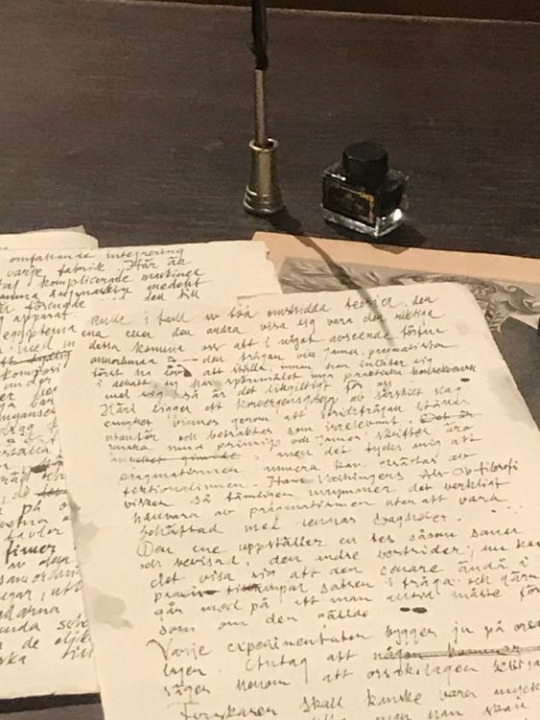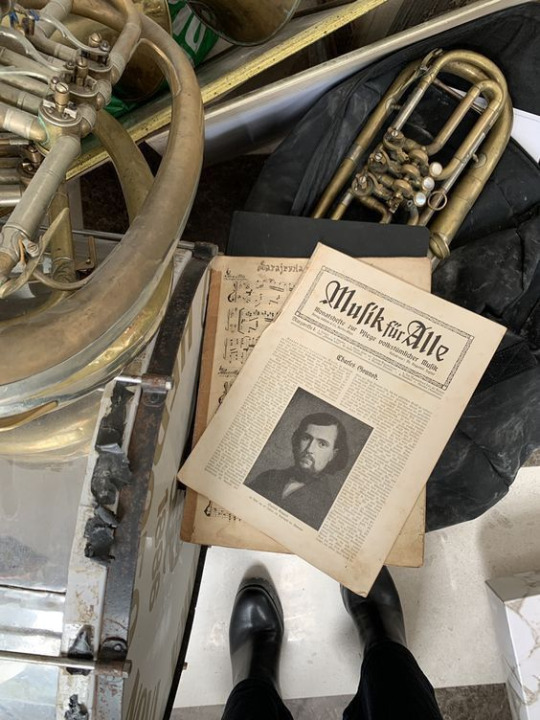#chaos for life
Explore tagged Tumblr posts
Text
Literally all the fuckin time! The only time I'm not thinking of him is when im thinking of Mortarion!!!
do you think about fulgrim? have you thought about fulgrim? will you think about fulgrim? when will you think about fulgrim?
125 notes
·
View notes
Text
sometimes the best writing advice is "just let it be bad." revolutionary. terrifying. but it works.
#writing#writeblr#writer problems#writing humor#writers on tumblr#writing memes#writing community#writing struggles#writer life#creative writing#writer things#writing motivation#ao3 writer#writer memes#writing is hard#on writing#writerblr#writers block#writing funny#writer thoughts#fiction writing#writer struggles#writing tips#writing advice#writer woes#writing woes#writer quotes#writing inspiration#plot problems#writer chaos
27K notes
·
View notes
Text
hc that every couple months jason texts tim like "hey r you going rogue yet?" "no" "alr lemme know if you change your mind" until one night tim gets this text while he's having an absolute shit week and goes yknow what? why not and suddenly the internet is filled with news that red hood teamed up with an unknown associate to cause chaos(stealing from corrupt billionaire type chaos, not mass murder of innocents type chaos) and said associate randomly shows up again every couple months
#tim: idk i feel like without yj im just lacking that chaos in my life#jason: bet#tim drake#jason todd#robin#red robin#red hood#jason todd and tim drake#jason todd & tim drake#dc#dc comics#batman comics
13K notes
·
View notes
Text
the perfect scene with the perfect comment
#he hit those speeds WITH inhibitor rings on#AND WITHOUT a chaos emerald#shadow broke the light and sound barrier to save sonic#let that sink in#shadow the man that you are#the ultimate life form truly#shadow the hedgehog#sonic the hedgehog#sonic prime#sonic prime season 3#sonadow#prime sonadow#sonic#sonic fandom
6K notes
·
View notes
Text
The Power of Silence in Dialogue
We often think of dialogue as something that’s just about what characters say, but let’s talk about what they don’t say. Silence can be one of the most powerful tools in your writing toolbox. Here’s why:
1. The Unspoken Tension
When characters leave things unsaid, it adds layers to their interactions. Silence can create a tension that’s so thick you could cut it with a knife. It shows things are happening beneath the surface—the real conversation is happening in what’s left unspoken.
Example:
“So, you’re leaving, huh?” He didn’t look up from the table, his fingers tracing the rim of his glass, slow and deliberate. “Yeah.” “Guess I should’ve expected this.” (Silence.) “You’re not mad?” “I’m not mad,” she said, but the way her voice broke was louder than anything she'd said all night.
2. Building Anticipation or Drama
Sometimes silence can heighten the drama, creating a pause where the reader feels like something big is about to happen. You don’t always need words to convey that sense of dread or anticipation.
Example:
They stood there, side by side, staring at the door that had just closed behind him. “You should’ve stopped him.” She didn’t answer. “You should’ve said something.” The room felt colder. “I couldn’t.” (Silence.)
3. Creating Emotional Impact
Sometimes, saying nothing can have the biggest emotional punch. Silence gives the reader a chance to interpret the scene, to sit with the feelings that aren’t being voiced.
Example:
He opened the letter and read it. And then, without saying a word, he folded it back up and placed it in the drawer. His fingers lingered on the wood for a long time before he closed it slowly, too slowly. “Are you okay?” He didn’t answer.
TL;DR
Silence isn’t just a pause between dialogue—it’s a powerful tool for deepening emotional tension, building anticipation, and revealing character. Next time you write a scene, ask yourself: what isn’t being said? And how can that silence say more than the words ever could?
#writerblr#writers#creative writing#Writing tips#fiction writing#writing#am writing#fanfic writing#tumblr writing community#writing advice#fic writing#writing community#writing inspo#fanfiction writing#writers on ao3 writers on tumblr#writing stuff#wip#writers block#creative writing tips#writer things#writing problems#writing struggles#writer life#writer woes#writer quotes#plot problems#writer chaos#writing inspiration#writing is hard#ao3 writer
3K notes
·
View notes
Text
i think it is a very powerful thing when the story inside you is so loud that you are forced to relearn how to draw, write, and talk to people to get it made into a real thing
#writing#writeblr#writer problems#writing humor#writers on tumblr#writing memes#writing community#writing struggles#writer life#creative writing#writer things#writing motivation#ao3 writer#writer memes#writing is hard#on writing#writerblr#writers block#writing funny#writer thoughts#fiction writing#writer struggles#writing tips#writing advice#writer woes#writing woes#writer quotes#writing inspiration#plot problems#writer chaos
2K notes
·
View notes
Text




I've seen my own sun darkened
#aesthetic#academia#classic academia#dark academia#dark academic aesthetic#light academia#literature#chaotic academia#chaos#chaotic thoughts#romanticism#romantic academia#romantisizing life#dark aesthetic#old aesthetic
5K notes
·
View notes
Text
"Oh my God why would they do that????" I say as I write someone doing something bad with my own ten fingers
#writers on tumblr#writerscommunity#writing#writeblr#funny#shitpost#creative writing#writer inspiration#writers in tumblr#writer insanity#writer issues#writer woes#writing life#fiction writing#writer life#writers#writers block#writer funny#writers and poets#ao3 writer#writer chaos#writing advice#writing adventures#writing struggles#writing quotes#writing memes#writing humor
2K notes
·
View notes
Text
once again thinking about jason as duke’s robin. he’s ~4 years younger than jason, and that puts him at 8-12 during Jason’s time as robin. that’s prime time to get attached to your local kid vigilante before your own life goes downhill.
and if we try to keep duke’s meeting with bruce in zero year + duke’s age (so he can remember the meeting and hold that conversation with bruce), he has to be around 8. if he starts following batman through the news at that time because of the mess that just happened, the robin he sees is probably jason. I’ve literally connected the dots
#we are not of course keeping zero year itself. what a mess.#maybe smth very similar so it’s still the riddler causing mass chaos!#the titans so we actually keep the no robin physically present in the story part the same#look. if we want zero year convo we need to give bruce a robin at the time. it could be 17-18yr old who’s not even in gotham bc he’s with#by time tim shows up he’s already attached to jason#and then steph’s robin suddenly for a bit but only for a bit. and then tim comes back but he’s in bludhaven for a while#i do think duke would think steph is really cool tho. and they reasonably couldve met as civilians#and then duke’s busy bouncing around foster homes the streets and looking for his parents#i wanted to talk about how much i love it and the tags are just be working out a timeline for post crisis events & post flashpoint ones (an#some of duke’s important events are related to things which are no longer canon. such is life. let’s do our best based on ages)#duke thomas#jason todd
3K notes
·
View notes
Text
writing? oh, i’m definitely writing. in my head. during the most inconvenient times. like in the shower or when i’m about to fall asleep. actual typing? no, no, we don’t do that here.
#writing#writeblr#writer problems#writing humor#writers on tumblr#writing memes#writing community#writing struggles#writer life#creative writing#writer things#writing motivation#ao3 writer#writer memes#writing is hard#on writing#writerblr#writers block#writing funny#writer thoughts#fiction writing#writer struggles#writing tips#writing advice#writer woes#writing woes#writer quotes#writing inspiration#plot problems#writer chaos
15K notes
·
View notes
Text

Take me with you
Robotnik's huge green face jumpscare under the cut

I felt like I needed to share this one I luv his crazy ass

#Stobotnik#agent stone#doctor robotnik#sonic movie#my art#something about unstoppable devotion vs immovable ego#you complete me (if you even care)#I need the world domination playlist so bad#chaos robotnik you're so dear to me#I realize the folly of posting this Saturday in the middle of the night#but such is life
2K notes
·
View notes
Text
O_Oo <- unequivocal love for this skin actually

I’m finally finished all my school assessments so I can GET BACK TO DRAWING :DDD
#art#fanart#wild life#trafficblr#bigbstatz#bigbstatz fanart#life series#life series fanart#character design#this is a very liberal interpretation of the skin I mostly took a glance at it said that’s neat and then just gave him a bunch of branches#traffic life#chaos#Radish arts
1K notes
·
View notes
Text
We are writers my love. We don't cry. We bleed on paper.
#writing#writeblr#writers on tumblr#writing community#writing struggles#writer life#creative writing#writer things#writing motivation#writer memes#on writing#writerblr#writers block#writing funny#writer thoughts#fiction writing#writer struggles#writing advice#writer quotes#writing inspiration#plot problems#writer chaos
722 notes
·
View notes
Text
Things Math Professors Say
"The proof is trivial." (Oh, cool. Guess I’m just an idiot then.)
"Left as an exercise." (Translation: You’ll never solve this in a million years.)
"It’s obvious, really." (Sure, if you’re a demigod.)
"By inspection." (Stares harder at problem… still nothing.)
"For small values of epsilon." (How small? Subatomic? Microscopic? Vibes?)
"WLOG (Without Loss of Generality)." (Oh, we’re just assuming it doesn’t matter now? Alright.)
"Details omitted." (Because apparently, you don’t need to understand it.)
"By the usual argument." (Which you somehow don’t know because you weren’t born in 1702.)
"Assume the rest holds." (That’s some impressive optimism right there.)
"The usual abuse of notation." (Why does this feel like an emotional wound?)
"Almost surely correct." (But also possibly wrong? Cool, thanks for the clarity.)
"A non-rigorous approach." (I thought math was supposed to be precise?!)
"Assume it’s obvious." (Buddy, NOTHING about this is obvious.)
"The reader may verify." (No, the reader may CRY.)
"To the interested reader." (Guess I’m not interested enough, huh?)
"Well-behaved functions only." (We’re function-shaming now?)
"Obvious to the trained eye." (Guess I’ll never make it out of amateur league.)
"A trivial case analysis." (Trivial to WHO??)
"Integrate by parts, twice." (Bold of you to assume I got it the first time.)
"As you can clearly see." (Oh, I clearly see my FAILURE, alright.)
"It works in practice too." (Unlike me, who barely works at all.)
"Assume a spherical cow." (Are we doing math or abstract sculpture?)
"A standard result." (Not in my standards, pal.)
"We skip the tedious algebra." (No, no, please—I wanted to suffer MORE.)
"Assume non-zero solutions exist." (Okay, now we’re just assuming life works out.)
"The usual topology." (Bro, I don’t even know the unusual topology.)
"Finitely many cases left." (Just kidding, there’s 72.)
"By virtue of symmetry." (Virtue? I have none left.)
"Don’t worry about the constant." (The constant is probably my GPA dropping.)
"Assume continuity." (I’m assuming my brain is breaking.)
"Smooth functions only." (Guess I’ll leave, I’m clearly not smooth enough.)
"The simplest non-trivial case." (Simplest? NON-TRIVIAL? Pick a side!)
"Epsilon goes to zero." (Epsilon isn’t the only one losing it.)
"And the rest follows." (Where? Straight to my breakdown?)
#math#mathematics#mathblr#STEM#academia#academic struggles#academic memes#academic jokes#academic humor#college life#student life#math struggles#math chaos#math confusion#math proof#this proof is trivial#rant#relatable#funny#joke#math nerd#math profs#proof struggles#things my math prof says
615 notes
·
View notes
Text
Pacing Through Sentence Length in Writing
You ever notice how a scene can feel like it’s dragging or speeding up based solely on the length of the sentences? Sentence length isn't just a technical detail—it’s a pacing tool. When used right, it can control the speed and tension of your story. Here’s how:
Short Sentences = Speed, Tension, Impact
Short, snappy sentences are like quick breaths, instantly pulling the reader’s attention. They mimic fast action, nervous energy, or urgent thoughts. They create momentum. Think of action scenes or emotional moments—often, less is more.
Example: The door slammed shut. His heart raced. She was gone.
In just three sentences, you feel the urgency, the chaos, and the emotional weight of the moment. It’s all about breaking up the narrative with these quick hits to keep the reader on edge.
Long Sentences = Build-up, Reflection, Depth
On the flip side, long sentences slow things down, adding complexity, reflection, or tension. They’re great for moments of introspection, world-building, or setting a scene in rich detail. These sentences create a flow, pulling the reader into the character’s headspace or the atmosphere of the moment.
Example: The wind howled through the narrow alley, carrying the distant sounds of a city that never seemed to sleep, never seemed to rest, and in that eternal hum, he wondered, not for the first time, if he would ever find peace here or if, like everyone else who tried to escape the shadows, he would simply become another part of the city’s endless noise.
Here, the length of the sentence mimics the complexity of the thoughts—heavy, reflective, almost hypnotic. It builds tension not with action but with an overwhelming feeling of being stuck or trapped in thought.
Combining Both = Dynamic Flow
The real magic happens when you mix short and long sentences. This creates a rhythm—suddenly, a break in the flow, a quick shock, and then back to a longer, more drawn-out moment. It reflects real life: quick bursts of action or emotion followed by moments of pause or thought.
Example: He reached for the door. It was locked. His heart pounded, each beat a reminder of how badly he needed this. There were no other options. There was no way out. The key could be anywhere. And he could not afford to wait any longer.
TL;DR:
Long sentences = build tension, create depth, set mood. Short sentences = ramp up urgency, show action, make an impact. Mastering this flow is a game-changer for pacing!
#writerblr#writers#creative writing#Writing tips#fiction writing#writing#am writing#fanfic writing#tumblr writing community#writing advice#fic writing#writing community#writing inspo#fanfiction writing#writers on ao3 writers on tumblr#writing stuff#wip#writers block#creative writing tips#writer things#writing problems#writing struggles#writer life#writer woes#writer quotes#plot problems#writer chaos#writing inspiration#writing is hard#ao3 writer
2K notes
·
View notes